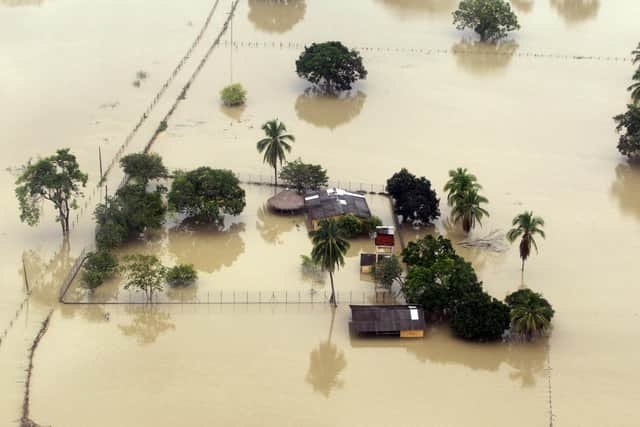Archbishop Martin urges personal sacrifice to help 'sick planet'
and live on Freeview channel 276
In a homily at St. Patrick’s Cathedral on Sunday, the Derry-born Primate said: “We cannot simply leave it to governments to solve these immense problems. Humility calls on each one of us to share both the burden and the search for solutions.
“In our personal lives at home, and in our schools, parishes and communities, the challenge rests with each and all of us.”
Advertisement
Hide AdAdvertisement
Hide AdHe was speaking ahead of the ecumenical Season of Creation which runs from September 1 to October 4, the Feast of Saint Francis of Assisi, the patron of ecology.


He encouraged Christians to make incremental changes in their own lives to help lessen their contribution to global warming.
Archbishop Martin asked people to ask themselves the following questions: “How might I change my lifestyle? How can I use more respectfully the good things of this earth that God has given us?
"Can I make some personal sacrifices in answer to the cry of the Earth and the cry of the poor that is knocking out of tune the harmony of the great cosmic choir? Can I accept that less is sometimes more?”
Advertisement
Hide AdAdvertisement
Hide AdThe Derry cleric observed that there can no longer be any doubt that man-made climate change is destroying large swathes of the earth.
“The consensus amongst scientists points to our planet’s sickness and the destructive impact that climate change is having.”
Archbishop Martin urged people to listen to the ‘cry of the poor’ in regions suffering the extremes of climate change, including ‘droughts, extreme weather events, desertification, deforestation, flooding and fires’.
“One only has to look at the way the world’s resources are sometimes squandered or exploited out of greed and for narrow economic interests. We hear of threats to the great forests of the world and the displacement of indigenous peoples.
Advertisement
Hide AdAdvertisement
Hide Ad“This summer we have seen the devastation of forest fires, lost crops, homes and livelihoods destroyed, scorched earth, massive floods, and temperatures never before recorded.
“On top of this, war continues to disrupt the food chain, pollutes the atmosphere still further, and exacerbates the world’s huge dependence on fossil fuels like oil and gas,” he said.
He cited Pope Francis’ 2015 encyclical Laudato si’ with its strident environmental message.
“Last October Pope Francis and other religious and faith leaders met with many scientists and experts, concluding that we are currently ‘at a moment of opportunity and truth’. ‘Future generations will never forgive us if we squander this precious opportunity’, they said. ‘We have inherited a beautiful garden; we must not leave a desert to our children’.
Advertisement
Hide AdAdvertisement
Hide Ad“From a faith point of view, God is calling us today, more than ever, to be caring stewards of creation, to protect and nourish our planet and its resources, and not to selfishly waste them or ruthlessly and excessively exploit and destroy them.
The challenge to be humble before the wonder of God’s creation, to accept that we need a more balanced, and less wasteful lifestyle; we need ‘to live more simply, so that others might simply live’.”
